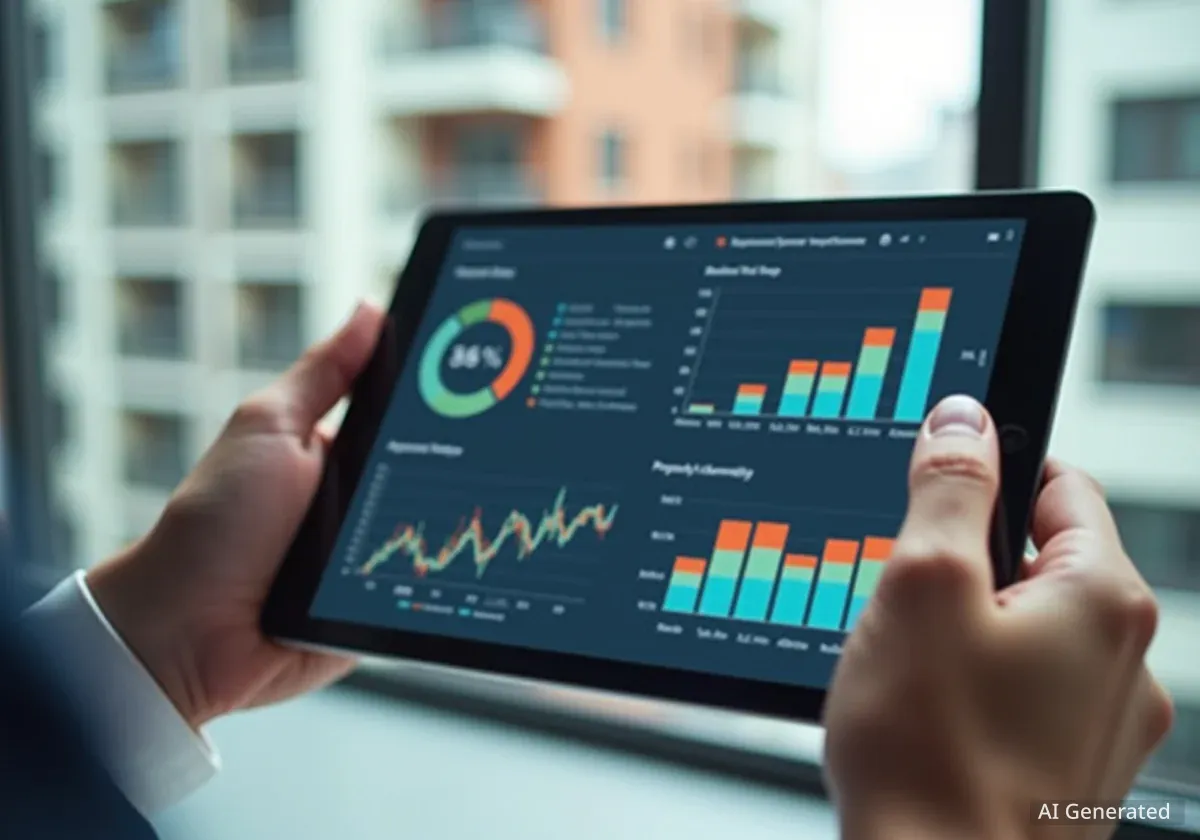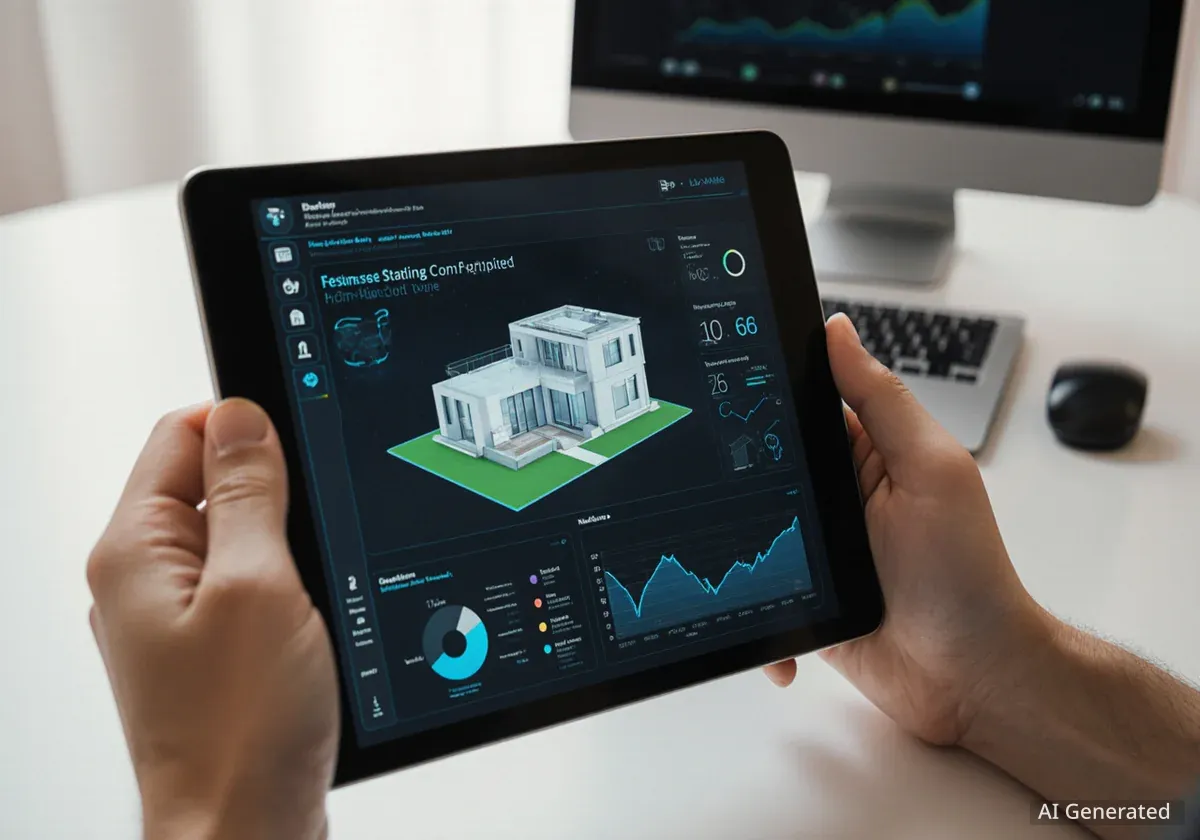For independent real estate investors and small-scale landlords, managing properties often involves a constant juggle of rent collection, maintenance requests, and tenant communication. A Michigan-based real estate professional has found that technology offers a streamlined solution, significantly reducing the administrative stress associated with managing a small portfolio of rental units.
Jashan Singh, an agent and investor in Kalamazoo, Michigan, manages six properties—four of his own and two for a client. He discovered that leveraging specialized software could automate many of the tedious tasks that were consuming his time and creating organizational challenges, transforming his approach to property management without the high cost of hiring a traditional management firm.
Key Takeaways
- Independent landlords are turning to property management software to automate tasks like rent collection and maintenance coordination.
- Technology platforms offer a cost-effective alternative to traditional property management companies, which typically charge 8-12% of rental income.
- Automated systems can improve landlord-tenant communication, leading to faster response times for issues like repairs.
- Some platforms provide added benefits for tenants, such as reporting on-time rent payments to credit bureaus to help build their credit scores.
The Challenge of Hands-On Property Management
Managing rental properties, even a small number, can quickly become a complex undertaking. The responsibilities extend far beyond simply collecting a check once a month. Landlords must handle tenant screening, lease agreements, emergency repairs, and regular maintenance, all while ensuring compliance with local regulations.
For Jashan Singh, this reality was a source of constant pressure. His work involved both helping clients with fix-and-flip projects and managing his own investment properties. The administrative side of being a landlord, however, was proving to be a significant bottleneck.
"I was constantly struggling to get rent payments on time—chasing checks on the first of every month, keeping scattered notes and even forgetting maintenance requests. It was stressful and disorganized."
This manual approach created inefficiencies that only threatened to worsen as his portfolio grew. The traditional alternative, hiring a property management company, was not a viable option for his small-scale operation. These firms often charge between 8% and 12% of the annual rent, a significant portion of the profit margin for an independent investor.
A Shift Towards Digital Solutions
Seeking a more efficient and affordable method, Singh began exploring property management software. He needed a tool that could centralize his operations without incurring the high costs of a full-service manager. His search led him to a platform called RentRedi, which he first encountered through social media.
"I saw a video of a guy managing over 100 rental units all by himself using this amazing software, and that really caught my attention,” Singh explained. The idea of a single platform handling multiple facets of property management was exactly the solution he was looking for.
The Rise of PropTech for Small Landlords
The property technology, or PropTech, sector has expanded rapidly, offering tools once reserved for large real estate corporations to individual investors. These platforms bundle services like online rent payments, tenant screening, maintenance ticketing systems, and digital lease signing into affordable, subscription-based packages. This accessibility allows small landlords to professionalize their operations and compete more effectively in the rental market.
For Singh, a key factor was an exclusive offer available through his membership with the National Association of REALTORS® (NAR), which provided access to the full suite of services for an annual fee of $99. This presented a stark contrast to the thousands of dollars a traditional management company might charge for his portfolio.
Transforming Day-to-Day Operations
After adopting the software, Singh reported an immediate change in his workflow. The platform provided a centralized dashboard to oversee all aspects of his properties, from financial tracking to tenant communication.
"The platform has streamlined everything,” he noted, “from tenant screening to rent collection — making property management so much easier."
From Phone Calls to App Notifications
Singh shared a specific instance where the technology proved its worth. A tenant submitted a maintenance request late one evening through the app. He received an instant notification, assigned the task to his handyman the following morning, and the problem was fixed within 24 hours. This entire process was managed through the platform without a single phone call or text message, preventing delays and miscommunication.
This level of organization and efficiency was a significant departure from his previous method of scattered notes and manual follow-ups. The system not only benefited him but also improved the experience for his tenants.
Benefits for Both Landlord and Tenant
Modern property management platforms are designed to be a two-way street, offering features that benefit renters as well. For instance, tenants can pay rent online, set up automatic payments, and formally submit maintenance requests with photos, creating a clear record of communication.
Singh highlighted a feature that helps tenants build their financial standing. “You can opt them in for a credit boost since RentRedi reports rent payments to the credit bureaus, which can help improve their credit scores,” he said. This value-added service can make a property more attractive to prospective renters and incentivize timely payments.
For landlords like Singh, the ability to offer such benefits enhances the professional relationship with tenants and contributes to lower turnover rates. The software handles the administrative heavy lifting, freeing him to focus on growing his investment portfolio and serving his real estate clients.
With rising operational costs and tightening profit margins in the real estate market, tools that deliver efficiency at a low cost are becoming indispensable. Singh considers this type of technology a "no-brainer" for any real estate professional managing rental properties.





